epistemology

Shermer and Carroll discuss: the measurement problem in physics • wave functions • entanglement • fields • interactions • scale • symmetry • gauge theory • phases • matter • atoms • time • double-slit experiment • superposition • directionality in nature • the multiverse • known unknowables • Is there a place for God in scientific epistemology?

This article explores the concept of truthiness, introduced by Stephen Colbert, and its implications in today’s discourse, where subjective truths often overshadow objective reality. It discusses the dangers of absolute certainty in beliefs, exemplified by a Young Earth creationist. Through Bayesian reasoning, it suggests adjusting beliefs based on evidence and introduces a model called Bayesian Balance, which helps in evaluating evidence without succumbing to absolute certainty.
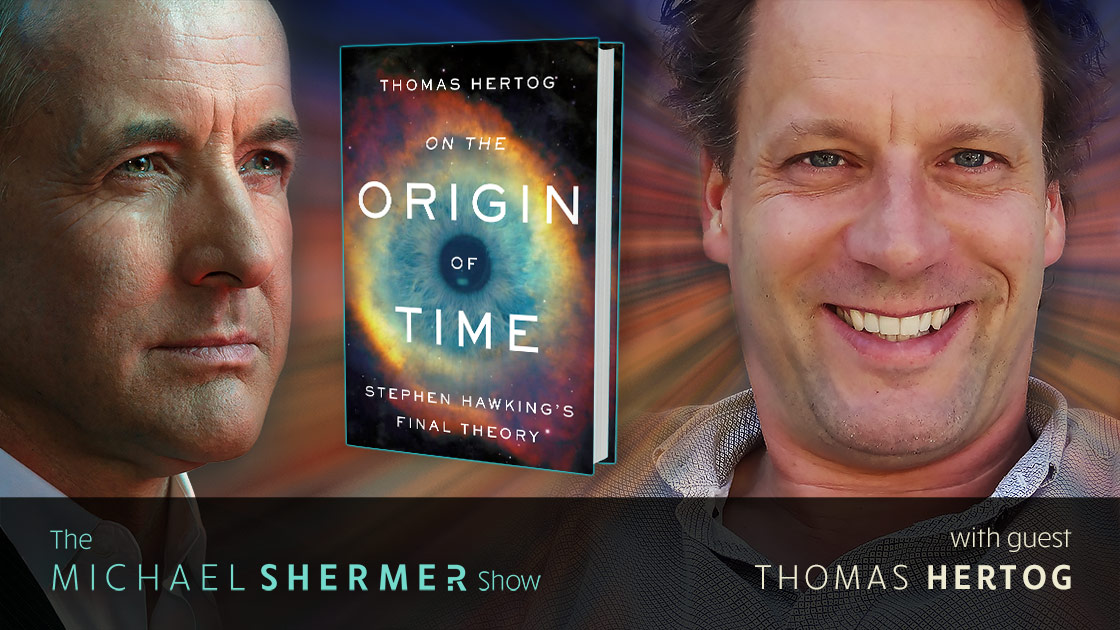
Shermer and Hertog discuss: what it was like working with Stephen Hawking • Darwinian model of cosmology • time • What banged the Big Bang? • cosmic inflation and multiple universes • how to reconcile Einstein’s relativity theory of gravity and quantum theory • Hawking’s no-boundary theory • why the universe appears designed • Feynman’s sum over histories approach to quantum physics • Is there purpose in the cosmos? • Why is there something rather than nothing?
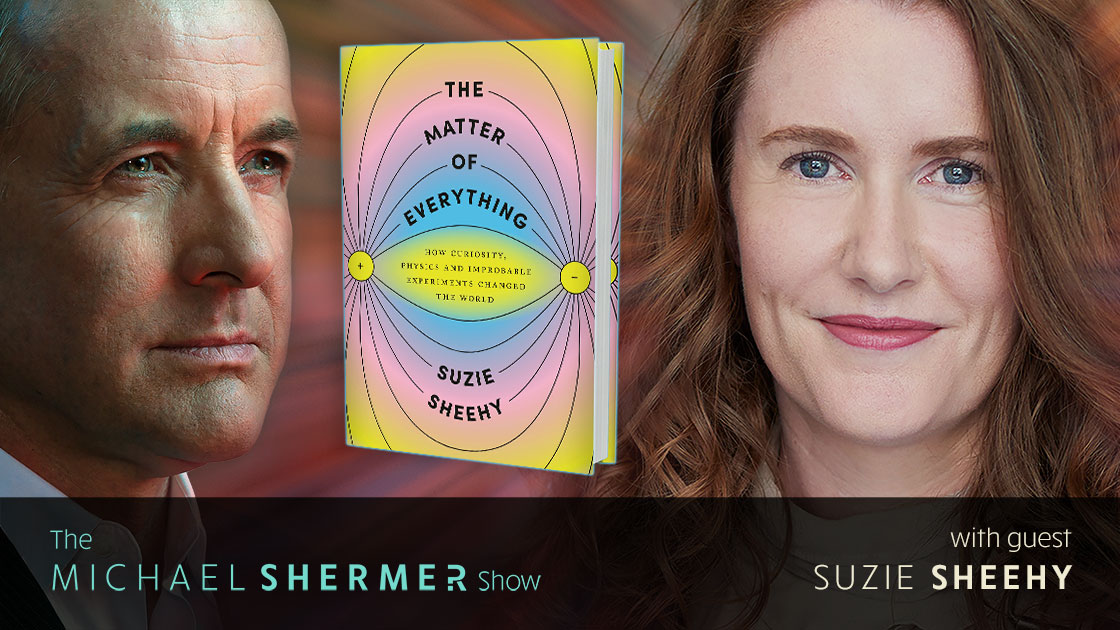
Shermer and Sheehy discuss: what it’s like being a female physicist in a mostly male field • Does science progress through falsification, confirmation, consensus, or Bayesian reasoning? • atoms, light, Higgs Boson, time, gravity, dark energy, dark matter, string theory, radioactivity • Gold Foil Experiment • cloud chambers • particle accelerators • splitting the atom • Is there a place for God in scientific epistemology? • Is math all there is? Is math universal? • other universes, dimensions, and the multiverse.
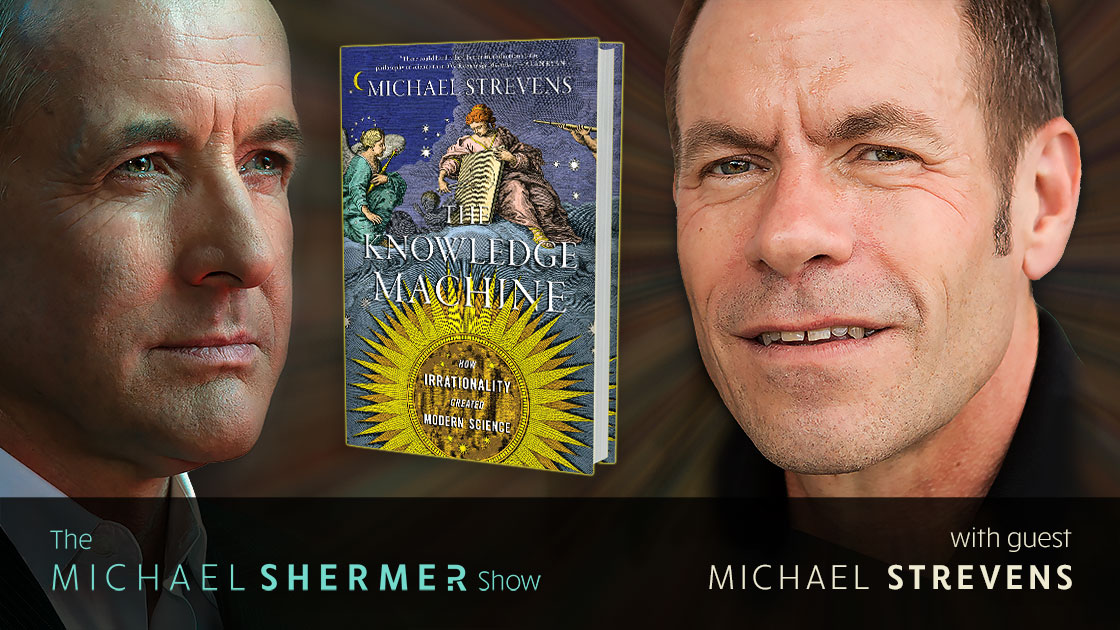
Shermer and Strevens discuss: irrationality and how it drives science • the knowledge machine • the replication crisis, what caused it, and what to do about it • verification vs. falsification • the iron rule of explanation • Bayesian reasoning vs. falsification • climate/evolution skeptics • model dependent realism • humanism • theistic arguments for: God, origin of life, morality, consciousness • known knowns, known unknowns, and unknown unknowns • how to evaluate media sources of science.
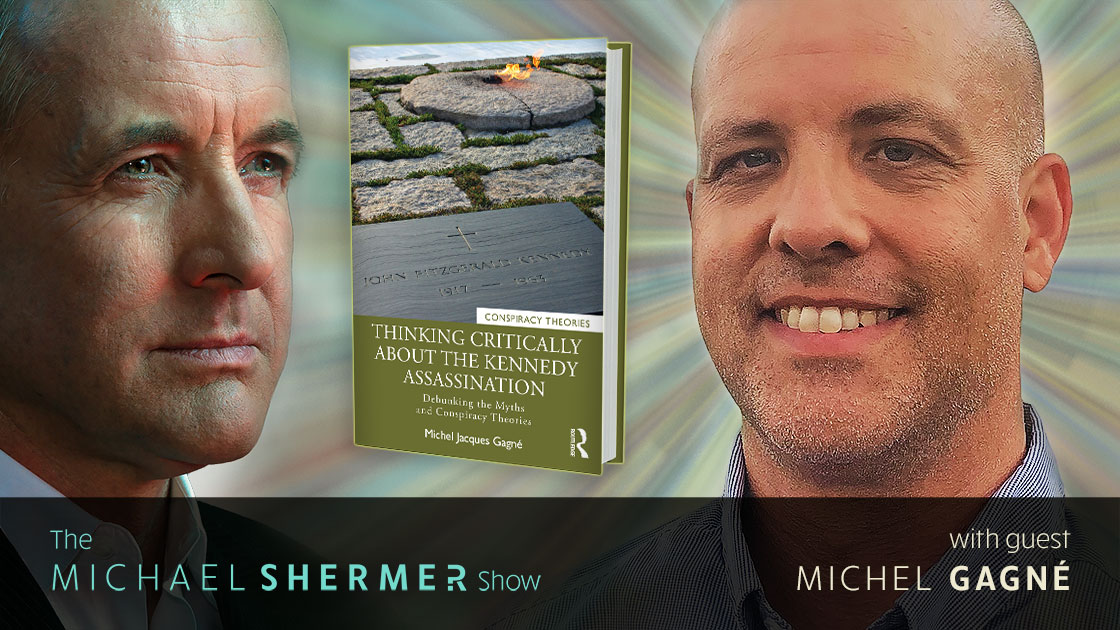
As we approach the sixtieth anniversary of the violent public assassination of President John F. Kennedy, over half of all Americans surveyed continue to believe that he was killed by a conspiracy involving multiple assassins. Shermer and Gagné discuss: conspiracies and conspiracy theories; what role conspiracy theories play in society; who believes them and why; why conspiracy theorists rewrite the past; Trump and rigged election; Obama Birtherism; and more…
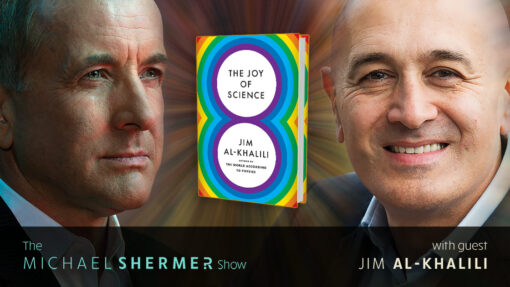
Michael Shermer speaks with quantum physicist, Jim Al-Khalili, who reveals how 8 lessons from the heart of science can help us all get the most out of our lives.
Mark W. Moffett remind us that breakthroughs in science often come about by exploring points of similarity between things that are normally seen as very different. PLUS: Michael Shermer speaks with quantum physicist, Jim Al-Khalili, who reveals how 8 lessons from the heart of science can help us all get the most out of our lives. PLUS: In SRC Report PCIS-005, we take a look at Conspiracy Theory Endorsement by Generation.
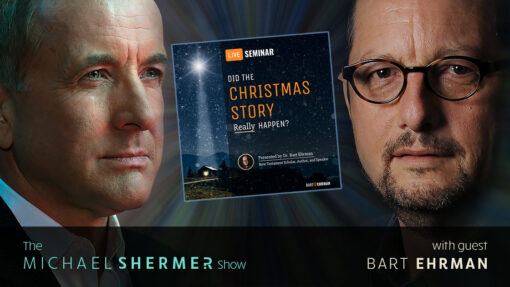
In episode 230, Michael Shermer speaks with renowned biblical scholar and historian Bart Ehrman about how Jesus became God and how Christianity grew from a few dozen followers at the time of Jesus’s death to over two billion followers today.
In episode 230, Michael Shermer speaks with renowned biblical scholar and historian Bart Ehrman about how Jesus became God and how Christianity grew from a few dozen followers at the time of Jesus’s death to over two billion followers today.
Astonishingly irrational ideas are spreading. Why? More importantly, what can we do about it? In episode 180 of Michael Shermer’s podcast, Michael speaks with Andy Norman about his book Mental Immunity: Infectious Ideas, Mind Parasites, and the Search for a Better Way to Think.
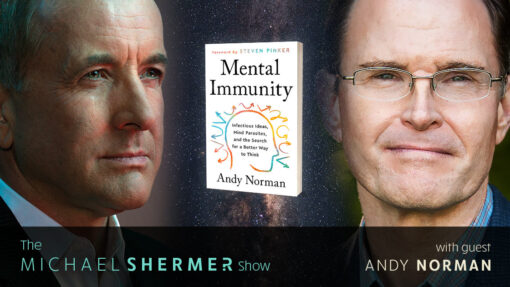
Astonishingly irrational ideas are spreading. Why? More importantly, what can we do about it? Michael Shermer and Andy Norman discuss: the plague of ideologies • memes and viruses • bad ideas as parasites • cognitive immunology • cultural immune systems • epistemology • gullibility • beliefs and values • evidence vs. faith • how to regulate beliefs, and impediments to curiosity.
In a lecture, Dr. Michael Shermer addresses one of the deepest questions of all: what is truth? Following that, Lee McIntyre and Michael Shermer debate whether we are living in a Post-Truth era of fake news and alternative facts.

Is post-truth the political subordination of reality? Is truth itself any more under threat today that in the past? Have the populists & postmodernists won the day? In response to Dr. Lee McIntyre’s essay, Dr. Michael Shermer asserts that people are not nearly as gullible as some believe.

Are we living in a Post-Truth era of fake news and alternative facts? Dr. Lee McIntyre avers that we must take seriously the threat to truth posed both by those who would subvert the truth for political gain, and also by those who would deny that such a threat actually exists.
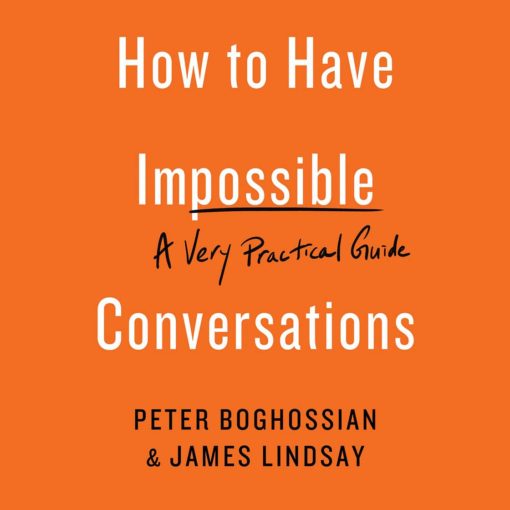
An excerpt from How to Have Impossible Conversations: A Very Practical Guide provides some tools to help people navigate contentious conversations.
In Science Salon # 105 Michael Shermer speaks with Diana Pasulka about her book: American Cosmic: UFOs, Religion, Technology. PLUS an excerpt from How to Have Impossible Conversations: A Very Practical Guide provides some tools to help people navigate contentious conversations.
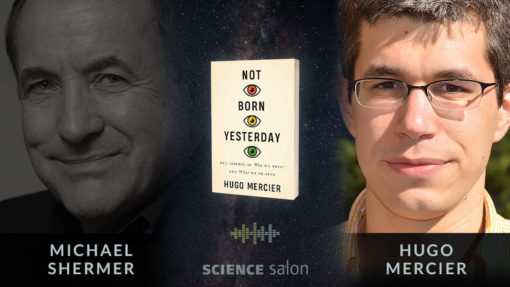
Not Born Yesterday explains how we decide who we can trust and what we should believe — and argues that we’re pretty good at making these decisions. Hugo Mercier demonstrates how virtually all attempts at mass persuasion — whether by religious leaders, politicians, or advertisers — fail miserably.
In Science Salon # 101 Michael Shermer speaks with Hugo Mercier about his new book: Not Born Yesterday: The Science of Who We Trust and What We Believe.
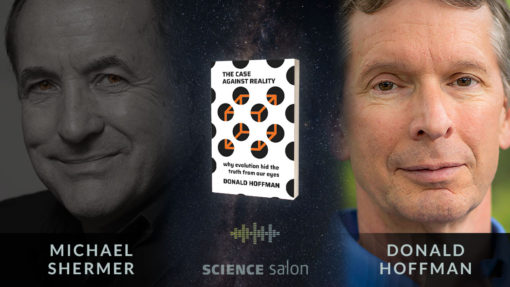
Cognitive scientist Dr. Donald Hoffman challenges the leading scientific theories that claim that our senses report back objective reality. How can it be possible that the world we see is not objective reality? And how can our senses be useful if they are not communicating the truth? Hoffman argues that while we should take our perceptions seriously, we should not take them literally.
NEXT →






















